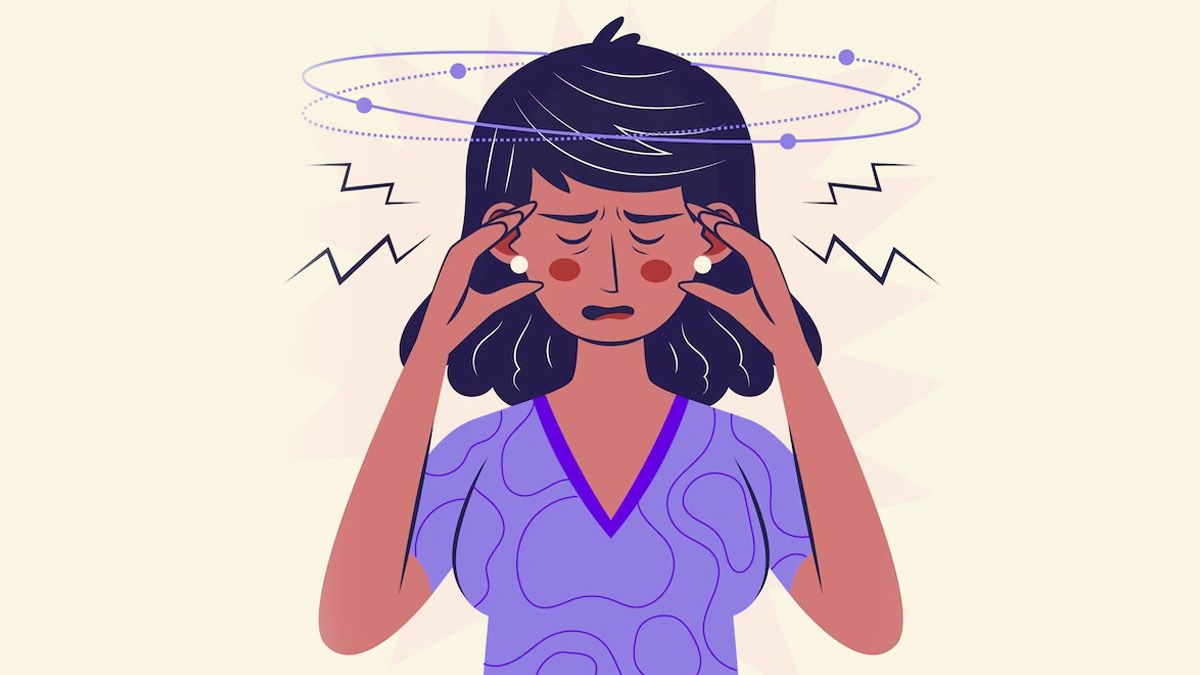
Vertigo is a common and distressing symptom characterised by a false sensation of spinning or movement. It can affect individuals of all ages and can significantly impact their daily lives. Understanding the causes, symptoms, and available treatments for vertigo is crucial for managing this condition effectively.
Table of Content:-
“Vertigo can have a significant impact on a person's daily life, preventing them from living their life to the fullest”, said Dr Jejoe Karankumar, Medical Director, Abbott India.
Vertigo Symptoms And Causes
According to Dr Michael Strupp, Professor of Neurology, Department of Neurology and German Centre for Vertigo and Balance Disorders, Ludwig Maximilians University Hospital, Munich, Germany, vertigo affects one out of every ten people worldwide, but there are still diagnostic challenges that can make the treatment journey long and difficult.
Vertigo is not a medical condition itself but rather a symptom of an underlying problem within the sensory system, responsible for maintaining balance and spatial orientation. The most common causes of vertigo include:
Benign Paroxysmal Positional Vertigo (BPPV)
This occurs when tiny calcium crystals in the inner ear become dislodged and disrupt the normal fluid movement, sending false signals to the brain.
Meniere's Disease
A chronic inner ear disorder that leads to recurring episodes of vertigo, along with hearing loss, tinnitus (ringing in the ears), and a feeling of fullness in the affected ear.
Vestibular Neuritis
Typically caused by a viral infection, it inflames the vestibular nerve, leading to sudden onset vertigo, dizziness, and imbalance.
Also read: From Extreme Fatigue To Dizziness: Symptoms, Causes, And Tips To Deal With Folate Deficiency
Labyrinthitis
Similar to vestibular neuritis, this condition involves inflammation of both the vestibular nerve and the cochlear nerve, causing vertigo, hearing loss, and ear pain.
Migraine-Associated Vertigo
Certain migraines can be accompanied by vertigo as a prominent symptom.

Signs and Symptoms
Vertigo is characterised by a range of symptoms, including:
- Spinning sensation: A false perception that you or your surroundings are spinning, tilting, or swaying.
- Nausea and vomiting: The intense feeling of motion can trigger queasiness and, in some cases, vomiting.
- Balance problems: Difficulty maintaining balance, unsteadiness, and a tendency to stumble or fall.
- Nystagmus: Involuntary eye movements, typically characterised by rapid and jerky motions.
- Anxiety and panic: The disorienting nature of vertigo can induce feelings of anxiety and panic in individuals experiencing it.
How To Manage Vertigo
If you are dealing with vertigo, it is crucial to seek medical attention to determine the underlying cause.
A doctor, such as an otolaryngologist or a neurologist, can conduct a thorough examination and recommend appropriate treatment options. Here are some general tips for managing vertigo:
- Stay still and find a safe position
- During a vertigo episode, it is best to sit or lie down in a safe place until the sensation passes.
- Avoid sudden movements
- Quick head or body movements can exacerbate vertigo symptoms, so try to move slowly and deliberately.
- Focus on visual cues
- Looking at a fixed point or a stationary object can help reduce dizziness and provide a reference for spatial orientation.
- Use assistive devices
- If balance is an ongoing concern, using a cane or walking stick can provide added stability and prevent falls.
- Medications and therapies
Also read: Dizziness: What Causes It And Foods To Add
Depending on the cause of vertigo, healthcare professionals may prescribe medications, such as vestibular suppressants or anti-nausea drugs, or recommend specific exercises and physical therapies to alleviate symptoms.

Vertigo can significantly impact an individual's quality of life, but with proper management and treatment, it is possible to mitigate its effects. By understanding the causes and symptoms of vertigo and seeking medical attention, those affected can receive appropriate care and support. Remember, everyone's experience with vertigo may differ, so it's crucial to consult a doctor for personalised advice.
Also watch this video
How we keep this article up to date:
We work with experts and keep a close eye on the latest in health and wellness. Whenever there is a new research or helpful information, we update our articles with accurate and useful advice.
Current Version